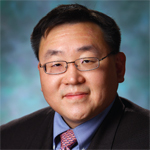Changes in healthcare delivery seem to be driving the increased prevalence of burnout among healthcare providers. The American Medical Association has identified multiple potential drivers of burnout, including loss of control of work, increased performance measurement, the increasing complexity of medical care, implementation of electronic record and profound inefficiencies in the practice environment.11 A recent commentary in the New England Journal of Medicine notes, “Increasing clerical burden is one of the biggest drivers of burnout in medicine. … Little of this work is currently reimbursed. Instead, it is done in the interstices of life, during time often referred to as ‘work after work’—at night, on weekends, even on vacation.”12
All of these factors impact workflow and care provider–patient interactions. Being a physician has always been stressful; burnout has become an issue because we now find ourselves busy doing the wrong type of work for our patients, work that does not improve our patients’ lives. Burnout seems to be the inevitable result of good physicians who are trapped in a bad system and try to serve as a bulwark between what our patients need and what our care delivery system allows us to provide.
Physician burnout is becoming increasingly prevalent. Only by examining these issues openly & honestly can we hope to stem the tide.
The Way Forward
The fault, as Shakespeare wrote, lies not in the stars, but in ourselves.13 Perhaps it should not be surprising that the same personality traits that led us to medicine and professional success are the fundamental cause of our tendency to burn out. To address these faults, several approaches have been used, including the following:
- Mindfulness refers to focusing on the present, through meditation and other techniques, and letting go of past burdens or future worries. The technique has been used successfully to treat anxiety, depression and pain. The concept dates back to the 1970s, but its cultural currency is exploding, culminating in A Mindful Nation, a book written by Congressman Tim Ryan of Ohio, regarding the impact of mindfulness on his district and his own life.14
- Resilience refers to the ability to approach stress with optimism and with humor. The term was originally developed by psychologists to describe children who managed to thrive in the face of adversity. The modern concept implies that resilience may not just be an inborn trait; it can be taught. Resilience among physicians is associated with a number of practices, including taking time for leisure activities, cultivation of relationships with colleagues and friends, limiting work hours and acknowledging medical uncertainty and medical errors when they arise.15
- Self-compassion may be the most difficult of the three to practice, because it involves learning to forgive one’s own imperfections. This can be a particularly tall order, because medicine tends to attract people who are inclined toward competitive perfectionism. Several academic centers have pioneered the use of cognitively based compassion training, which trains clinicians to celebrate successes, rather than obsess over failures.16
Starting by focusing on the individual physician is particularly important because burnout may be contagious. Just as a rising tide lifts all boats, a burned-out physician’s attitudes and beliefs may spread throughout an organization. Thus, treating an individual may prevent an epidemic.


